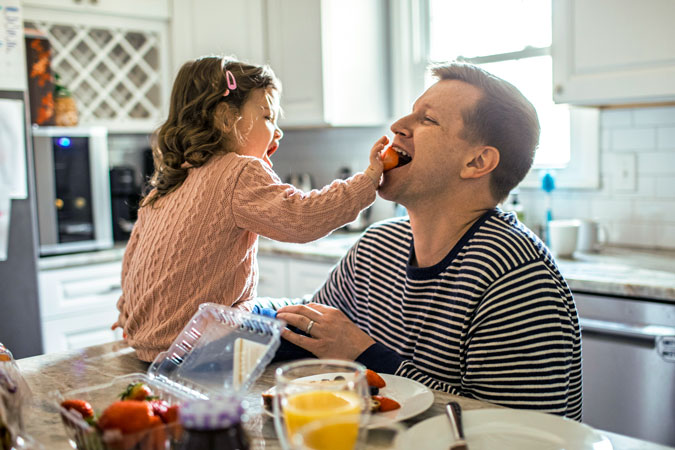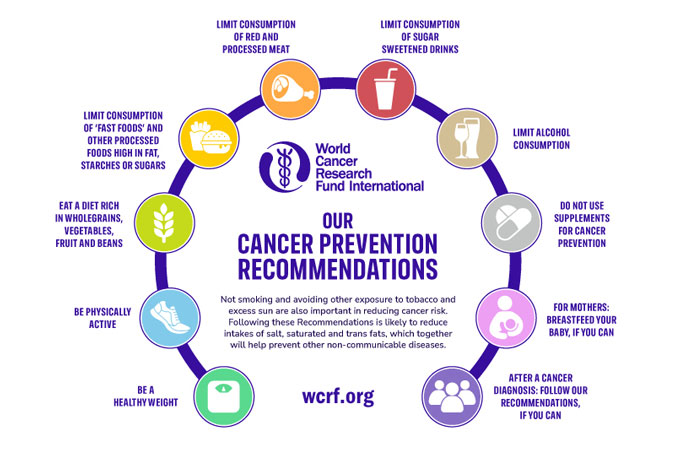Our Cancer Prevention Recommendations
Experts now believe that up to 40% of cancer cases are preventable. Our Cancer Prevention Recommendations are a blueprint for how to reduce your risk of cancer.

On this page
Many cases of cancer don’t need to happen. The technical term for this is modifiable – meaning the cause of the cancer could be modified or changed.
Our evidence – from massive population studies and from researchers who look at cells in a laboratory – suggests that around 40% of cancer cases could be prevented if people follow our Recommendations and if governments create environments where it’s easier to live healthily.
Our Cancer Prevention Recommendations – devised by experts and rigorously tested by independent scientists to confirm they work – are a blueprint for individuals and societies to reduce cancer.
Our Recommendations
- Be a healthy weight
- Be physically active
- Eat wholegrains, vegetables, fruit and beans
- Limit ‘fast foods’
- Limit red and processed meat
- Limit sugar sweetened drinks
- Limit alcohol consumption
- Do not use supplements for cancer prevention
- For mothers: breastfeed your baby, if you can
- After a cancer diagnosis, follow our Recommendations, if you can
Not smoking, and staying safe in the sun, are also important to reduce your cancer risk.

Do I need to follow all the Recommendations or just some?
Of our 10 Recommendations, 8 are aimed at everyone and 2 are for particular groups: mothers of babies, and cancer survivors.
The Recommendations should be seen as a package – unfortunately, you can’t just pick and choose if you want to reduce your cancer risk.
Being very active won’t compensate for drinking alcohol, and eating lots of pulses won’t make up for drinking lots of sugary drinks! Rather than seeing the Recommendations as a checklist, think of them as a way of living.
Will following the Recommendations do me any harm?
No. Not only will following our Recommendations reduce your risk of cancer, they can also reduce your risk of other diseases. The latest evidence shows that following our Recommendations:
- reduces the risk of new cancer cases
- reduces the risk of dying from cancer
- reduces the risk of dying from all causes
- improves quality of life in cancer survivors
But isn’t living healthily all the time really hard?
Yes, it can be sometimes – but we have many free resources to help you:

